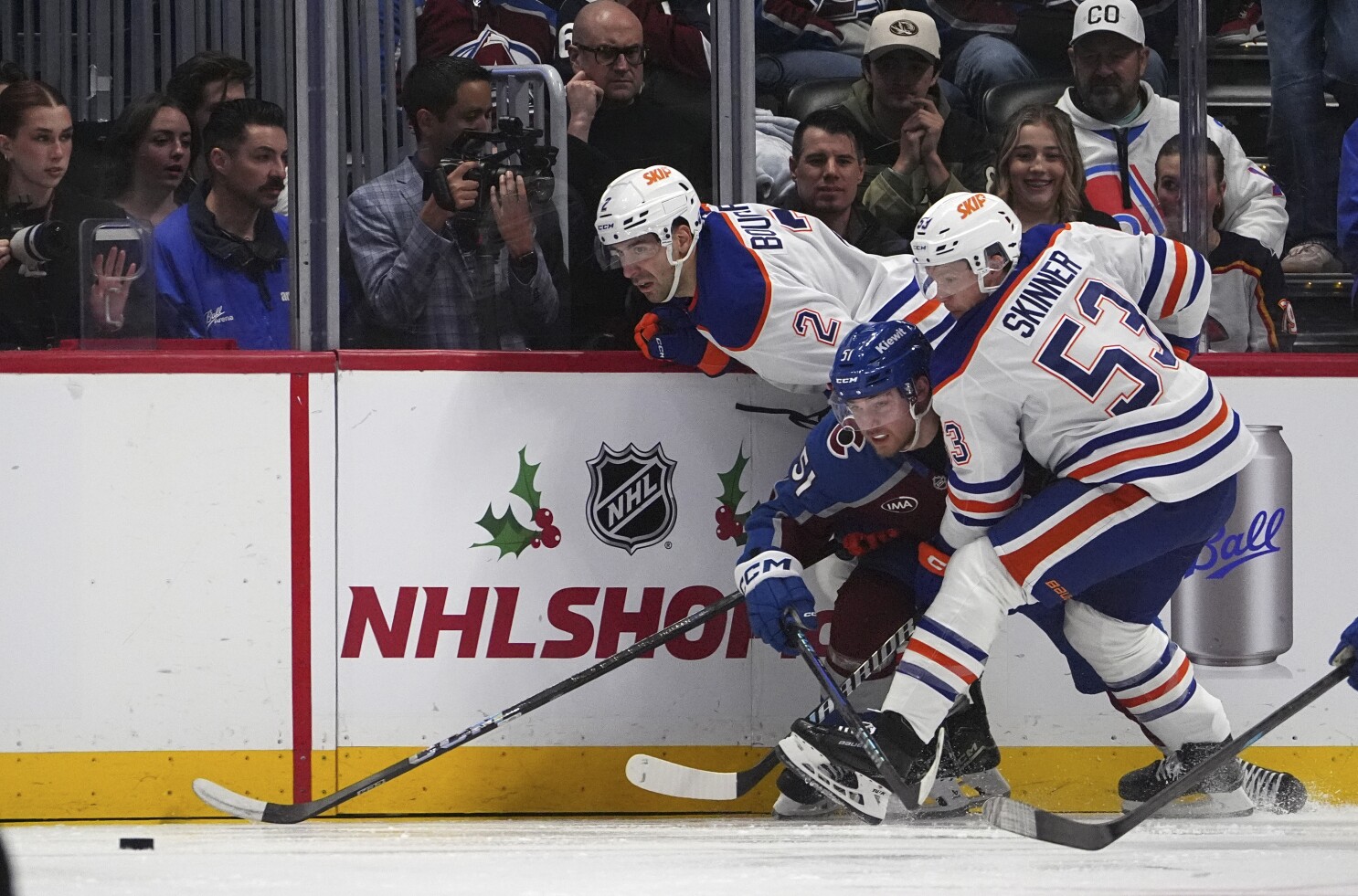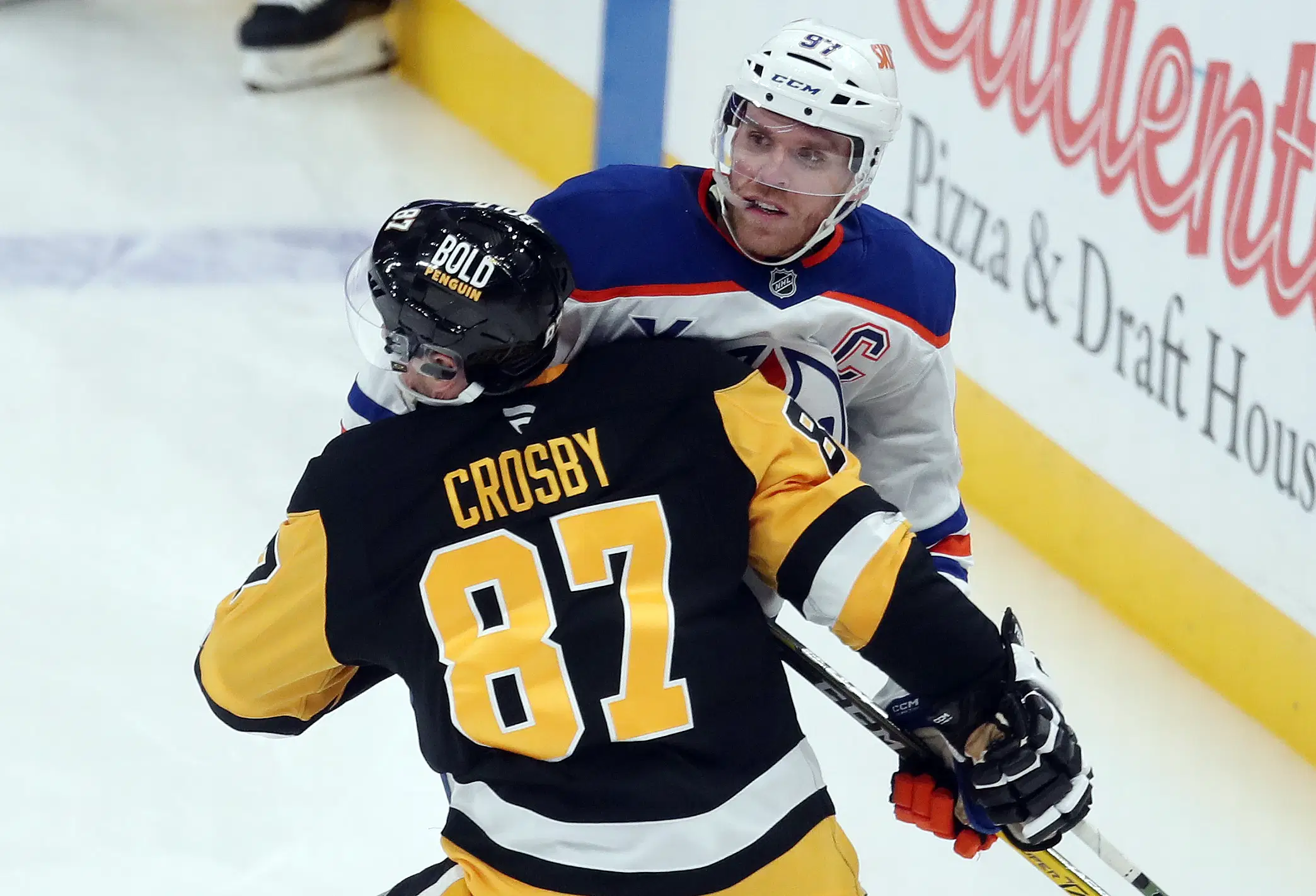Edmonton Oilers’ Jeff Skinner Fined for Embellishment: A Closer Look at the NHL’s Stand on Diving
In an announcement that highlights the NHL’s ongoing commitment to maintaining fair play, Edmonton Oilers forward Jeff Skinner was fined $2,000 for embellishment during a recent game against the New York Rangers. This disciplinary action underscores the league’s strict stance against diving and theatrics, which are considered unsportsmanlike and detrimental to the integrity of the sport.
The Incident in Question
The penalty stems from an incident during a match between the Edmonton Oilers and the New York Rangers. According to the NHL, Skinner’s actions were deemed to intentionally exaggerate contact to draw a penalty. While such tactics may occasionally fool officials in the heat of the game, they are meticulously reviewed afterward. In Skinner’s case, the NHL’s Department of Player Safety determined that his behavior crossed the line into embellishment, warranting a fine.
This incident highlights a broader issue within professional hockey—the balance between competitive strategy and sportsmanship. Players often walk a fine line when trying to gain an edge, but the league has made it clear that deliberate attempts to deceive officials will not be tolerated.
The NHL’s Approach to Embellishment
The NHL has a defined policy to address diving and embellishment. According to the league’s rules, a player may be fined progressively for multiple infractions related to embellishment. The goal of this policy is to deter players from engaging in deceptive behavior while maintaining the integrity of the game.
Fines for embellishment escalate with repeated violations. A first offense typically results in a warning, while subsequent infractions lead to monetary penalties. For Skinner, the $2,000 fine represents a significant statement, serving both as a punishment and a warning to avoid such conduct in the future.
Why Diving Is a Problem
Diving, often referred to as embellishment, undermines the spirit of hockey. The game is built on toughness, skill, and honesty, and actions like embellishment detract from these values. By exaggerating contact, players attempt to manipulate officials into awarding penalties that may not be deserved, thereby gaining an unfair advantage.
This behavior also has broader implications for the league. Diving can frustrate opponents, create unnecessary conflicts on the ice, and tarnish the reputation of the sport. Fans, who expect an honest contest, often view embellishment negatively, as it takes away from the authenticity of the game.
The NHL’s decision to penalize players for diving sends a strong message about the importance of preserving hockey’s core values. By cracking down on such behavior, the league aims to ensure that the focus remains on skillful play rather than theatrical antics.
Skinner’s History and Reputation
For Jeff Skinner, this may raise questions about his playing style and reputation. Known for his offensive skills and ability to navigate through tough defensive setups, Skinner is generally respected for his contributions on the ice. However, incidents like this can cast a shadow on a player’s otherwise positive image.
While this is not the first time the NHL has fined players for embellishment, Skinner’s case stands out due to the high-profile nature of the game in which the infraction occurred. As a prominent forward for the Oilers, his actions are often under scrutiny, and this fine serves as a reminder of the expectations placed on top-tier players.
Reactions from Fans and Analysts
The fine has sparked mixed reactions among fans and analysts. Some argue that diving is a common, albeit unfortunate, part of modern hockey, and Skinner’s actions were no different from what many players attempt during games. Others praise the NHL’s strict enforcement of the rules, emphasizing the need to hold players accountable for unsportsmanlike conduct.
Social media platforms have been buzzing with debates about whether the penalty was warranted. Some fans of the Oilers defended Skinner, suggesting that the fine was excessive, while others acknowledged that his actions were unnecessary and detracted from the team’s overall performance.
The NHL’s Commitment to Integrity
This incident is a part of the NHL’s larger effort to uphold integrity and sportsmanship in the league. Over the years, the league has introduced various measures to ensure that players adhere to a code of conduct that promotes fairness and respect for the game.
For instance, the NHL’s video review system allows officials to reexamine questionable plays, ensuring that penalties are justified and not influenced by player theatrics. This system has been instrumental in reducing the prevalence of diving, as players know their actions will be scrutinized after the fact.
Moreover, the league frequently updates its rulebook to address emerging issues and ensure that its policies reflect the current state of the game. The NHL’s strict stance on embellishment is just one example of how it seeks to maintain the highest standards of professionalism.
What This Means for Skinner and the Oilers
For Skinner, this fine serves as a clear warning to modify his approach. While his skill and competitiveness are assets to the Oilers, incidents like this can detract from his contributions and draw unwanted attention to the team.
The Oilers, currently vying for a strong position in the standings, cannot afford distractions. Team leadership will likely address the issue internally, emphasizing the importance of discipline and accountability.
In a broader sense, this incident highlights the challenges faced by professional athletes in balancing competitiveness with sportsmanship. Skinner’s case is a reminder that while hockey is a fast-paced and aggressive game, it is also governed by a set of principles that players are expected to uphold.
Moving Forward: Lessons for the League
The NHL’s decision to fine Skinner underscores the importance of vigilance in maintaining the integrity of the game. While diving may never be completely eradicated, consistent enforcement of the rules can significantly reduce its prevalence.
For players, this incident serves as a cautionary tale about the risks of embellishment. Beyond the financial penalty, such actions can damage a player’s reputation and hinder their ability to contribute effectively to their team.
For fans, the NHL’s response to diving reinforces the league’s commitment to ensuring an honest and exciting game. By addressing unsportsmanlike conduct, the league preserves the authenticity and competitiveness that make hockey a beloved sport worldwide.
Conclusion
Jeff Skinner’s $2,000 fine for embellishment is more than just a financial penalty; it is a statement about the NHL’s dedication to fair play and sportsmanship. By taking a firm stance against diving, the league sends a clear message that such behavior has no place in professional hockey.
As the season progresses, both players and teams will undoubtedly take note of this incident, striving to balance their competitive instincts with the principles of honesty and respect that define the game. For Skinner and the Oilers, this fine represents an opportunity to learn and move forward, focusing on the qualities that truly matter in the pursuit of victory.




